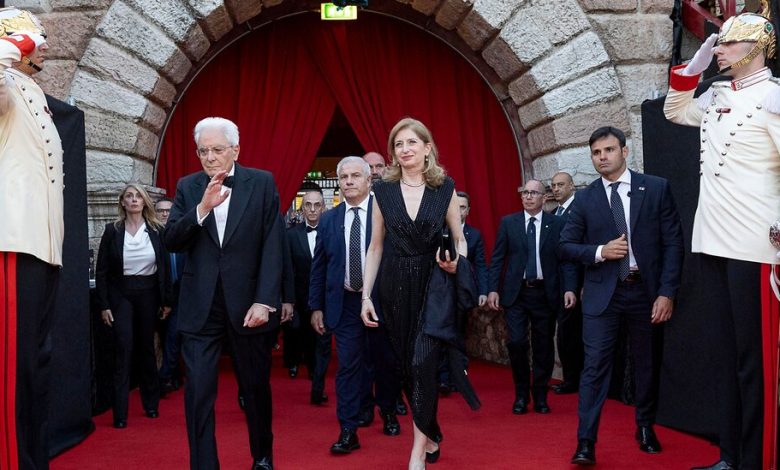Stars Singing Under the Stars: A Global Gala Celebrates Opera

If there was ever any question of what a Three Tenors concert on steroids might look like, the hundreds of performers belting out operatic greatest hits at the Arena of Verona on Friday night could offer a good answer.
Under a starry sky, there were sweeping overtures, including crowd-pleasers like the “William Tell Overture,” heart-wrenching arias, and an oversize orchestra and choir backing A-list soloists in what was billed as a once-in-a-lifetime concert to mark the addition last December of “the practice of opera singing in Italy” to the United Nations cultural organization’s Representative List of the Intangible Cultural Heritage of Humanity. The concert was a public acknowledgment of opera’s cultural impact around the world, broadcast worldwide from the ancient Roman amphitheater that draws tens of thousands of opera lovers each summer.
Opera’s “great masterpieces are our heritage, and we Italians have given them to the world,” the conductor, Riccardo Muti, said on Italy’s main national TV channel minutes before the event began.
Sitting in a raised balcony facing the stage, President Sergio Mattarella of Italy and Prime Minister Giorgia Meloni were flanked by high-ranking officials while the audience was filled with fashionable glitterati, opera fans and dozens of ambassadors “from countries where opera is loved,” said Gianmarco Mazzi, the under secretary of state to the Ministry of Culture.
Though most of the campaign for recognition took place under a previous, center-left government, the addition to the list by the U.N. agency, UNESCO, was a coup of sorts for Italy’s conservative government, whose culture minister, Gennaro Sangiuliano, has made it his mission to exalt Italianness.
One of his projects is a museum of Italian culture, to highlight the “contribution Italy has given to humanity,” and his directorial appointments at the most important museums have favored homegrown choices where the previous government sought international talent. His selection in April of a leader for La Scala, Milan’s great opera house, came with a statement trumpeting that the new boss, Fortunato Ortombina, was Italian, “after three foreign general directors.”
